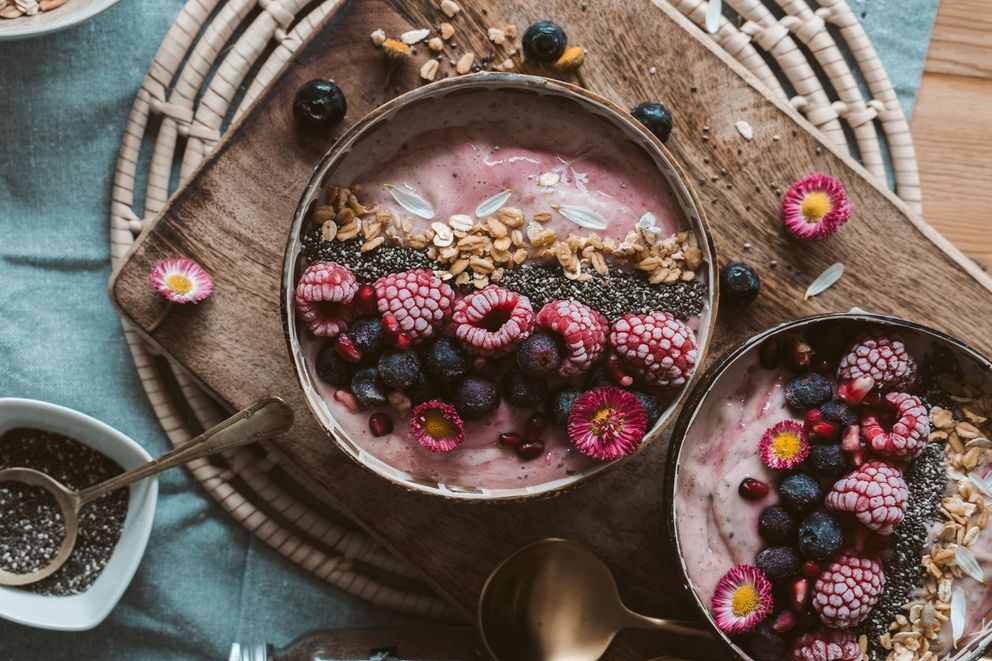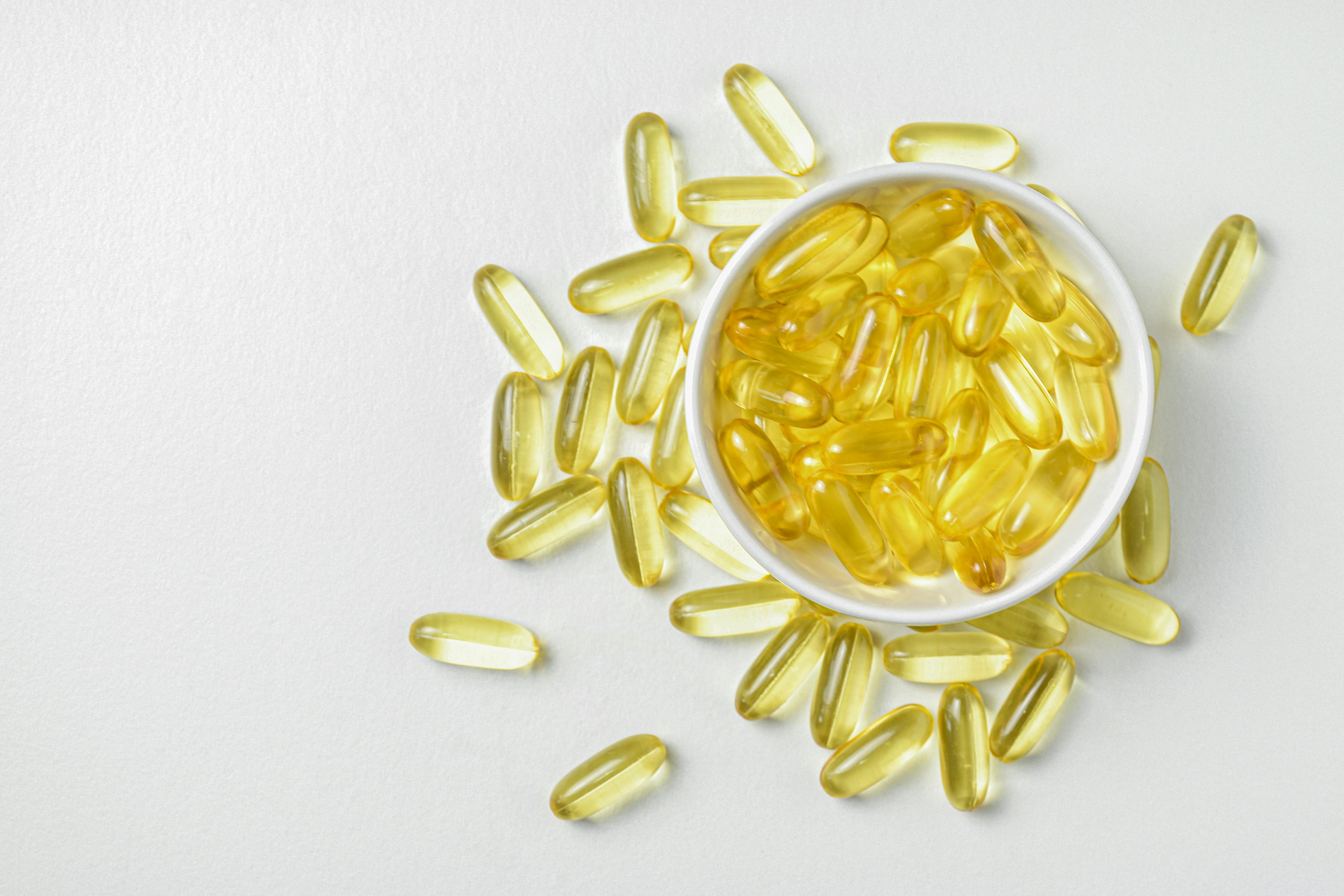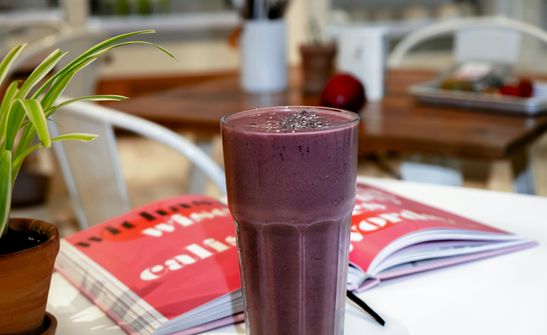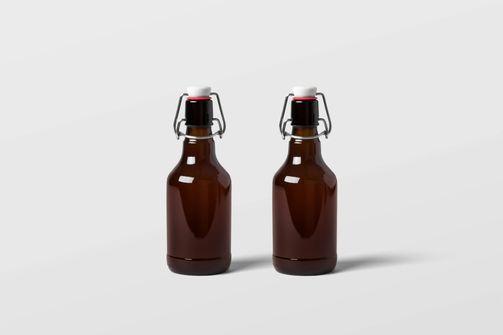
Why Electrolytes Are Essential for Active Women: A Guide to Natural Replenishment
When it comes to staying hydrated, electrolytes are the unsung heroes that keep your body balanced and energized, especially for active women. Whether...

Let’s be real, ladies – omega-3 fatty acids are essential for our overall health and well-being. These little powerhouses, particularly EPA and DHA, play a crucial role in keeping our hearts ticking, our brains sharp, and our babies developing beautifully in the womb.
But here’s the catch: while fish oil has long been touted as the go-to source of omega-3s, us vegetarians and vegans need to seek out plant-based alternatives. Why?
A study published in the International Journal of Behavioral Nutrition and Physical Activity found that vegetarians and vegans have lower levels of EPA and DHA compared to non-vegetarians.
Fear not, though – we’ve got your back with some fantastic fish oil vegan substitutes that’ll keep you thriving!
You might be wondering, what’s all the hype about omega-3s? Well, let us break it down for you.
Omega-3s are like the superheroes of the nutrient world, and we women need them for a multitude of reasons.
First off, they’re the ultimate sidekicks for heart health, helping to keep our cardiovascular system in tip-top shape. In fact, a study published in the American Journal of Clinical Nutrition found that women with higher levels of omega-3s had a 30% lower risk of heart disease.
But that’s not all – these essential fatty acids also play a vital role in brain function, ensuring our noggins are firing on all cylinders. Research published in the International Journal Of Nutrition suggests that omega-3s may help protect against cognitive decline and Alzheimer’s disease.
And let’s not forget our little bundles of joy – omega-3s are absolute MVPs during prenatal development, supporting the growth and well-being of our precious cargo. According to a review published in PLEFA, omega-3 supplementation during pregnancy may reduce the risk of preterm birth.
Finally, omega-3s are powerful inflammation fighters. A study in Nutrients found that they can help reduce inflammation in the body, saying goodbye to those pesky aches and pains!

Now that you’re convinced of the importance of omega-3s, it’s time to explore the top vegetarian alternatives to fish oil. Don’t worry, you won’t be missing out on these essential nutrients!
First up, algal oil. Here’s a fun fact: algal oil is derived from microalgae, which are the original source of omega-3s in fish. Talk about cutting out the middleman! This vegan fish oil replacement is not only highly bioavailable (meaning our bodies can easily absorb and utilize it), but it’s also a sustainable choice for our planet.
And get this – a study published in the Journal of Nutrition & Dietetics found that algal oil is as effective as fish oil in increasing EPA and DHA levels in the body.
Next, we have chia seeds and flaxseeds – two tiny powerhouses that pack a mighty omega-3 punch in the form of ALA, a plant-based fatty acid.
For example, one ounce of chia seeds contains a whopping 5 grams of ALA. Now, our bodies can convert ALA to EPA and DHA, but the conversion rate isn’t exactly stellar – only about 5% of ALA is converted.
Still, every little bit counts, right?
Walnuts are like the cool kids of the nut family – they’re one of the few nuts that contain ALA. In fact, a single ounce of walnuts provides 2.5 grams of ALA, according to the Cleveland Clinic. So, go ahead and sprinkle these crunchy gems on your salads, yogurt, or even enjoy them as a snack for a delightful dose of omega-3s.
Who knew that those slimy sea veggies could be such nutritional powerhouses? Certain types of seaweed and algae, like nori and chlorella, are packed with EPA and DHA – the same omega-3s found in fish oil. For instance, nori contains up to 1.6 grams of EPA and 0.6 grams of DHA per 100 grams.
Toss them into your salads, soups, or even smoothies for a tasty and nutritious boost.

Now that you know the top vegetarian sources of omega-3s, you might be wondering – “But how can I make sure I’m actually absorbing all these fantastic fatty acids?”
Good question! We’ve got a few tricks up our sleeves.
First, pair those omega-3-rich foods with a source of healthy fats, like avocados or nuts. This dynamic duo will help your body better absorb those precious fatty acids. According to research published in Biochemical and Biophysical Research Communications, consuming omega-3s with a source of fat can increase their absorption by up to 300%.
Second, grind or chew your seeds thoroughly. This simple step can increase the bioavailability of the omega-3s, ensuring your body can make the most of them. A study in Healthcare found that grinding flaxseeds significantly improved the absorption of ALA compared to whole flaxseeds.
Finally, mix it up! Including a variety of omega-3 sources in your diet is key to ensuring you’re getting a well-rounded intake of these essential nutrients. Different plant sources provide different types of omega-3s, so diversifying your sources is crucial.
Ladies, let’s recap: omega-3s are the ultimate multitaskers when it comes to our health, supporting heart, brain, prenatal, and anti-inflammatory benefits. And while fish oil has been the traditional go-to source, us vegetarians and vegans have plenty of fantastic plant-based alternatives to choose from.
From algal oil and chia seeds to walnuts and seaweed, we’ve got a whole arsenal of omega-3-rich foods at our disposal. Not only that, but we’ve shared tips to maximize absorption of these nutrients. So, let’s ditch the “is fish oil vegan” question and embrace these vegan replacements for fish oil. Your body (and the planet) will thank you!
Here’s an FAQ section using those long-tail keyword questions about vegetarian omega-3 sources for women:
A: Some of the best vegan omega-3 sources for women include algal oil, chia seeds, flaxseeds, walnuts, and seaweed like nori or chlorella. Algal oil provides preformed EPA and DHA, while the other sources contain ALA which can be partially converted. A variety of these plant-based foods is ideal.
A: It’s especially important for pregnant vegetarians to get adequate omega-3 intake, as these fatty acids support fetal brain and eye development. Good options include algal oil supplements, walnuts, ground flaxseeds or chia seeds, edible seaweed, and omega-3 fortified foods. Consult a doctor for specific dose recommendations.
A: Most plant sources like nuts, seeds, and oils contain the ALA form of omega-3s. Some exceptions that provide EPA and DHA are algal oil derived from microalgae, as well as certain seaweeds like nori. These sources offer the preformed omega-3s typically found in fish.
A: Yes, vegetarian and vegan women have several fish oil alternatives including algal oil, chia/flax seeds, walnuts, edible seaweeds, and fortified foods. Algal oil in particular is a great plant-based source of the same EPA/DHA omega-3s found in fish oil.
A: Some top vegetarian omega-3 supplement options are algal oil, chia/flaxseed oil, or vegan EPA/DHA capsules. Look for ones with third-party purity testing. Vegetarians may also want to consider an ALA supplement in addition to a microalgae-based EPA/DHA product.

When it comes to staying hydrated, electrolytes are the unsung heroes that keep your body balanced and energized, especially for active women. Whether...

Throughout history, cultures across the globe have embraced the healing power of beverages made from herbs, spices, and natural ingredients to promote...

Smoothies are a great way to fuel your body with essential nutrients, but adding adaptogenic herbs can take your wellness routine to the next level. A...

Herbal teas have been cherished for centuries as natural remedies for promoting overall health and well-being. For women, in particular, herbal teas c...

Fermented beverages like kombucha, kefir, and other probiotic-rich drinks are gaining popularity due to their powerful effects on gut health. These dr...